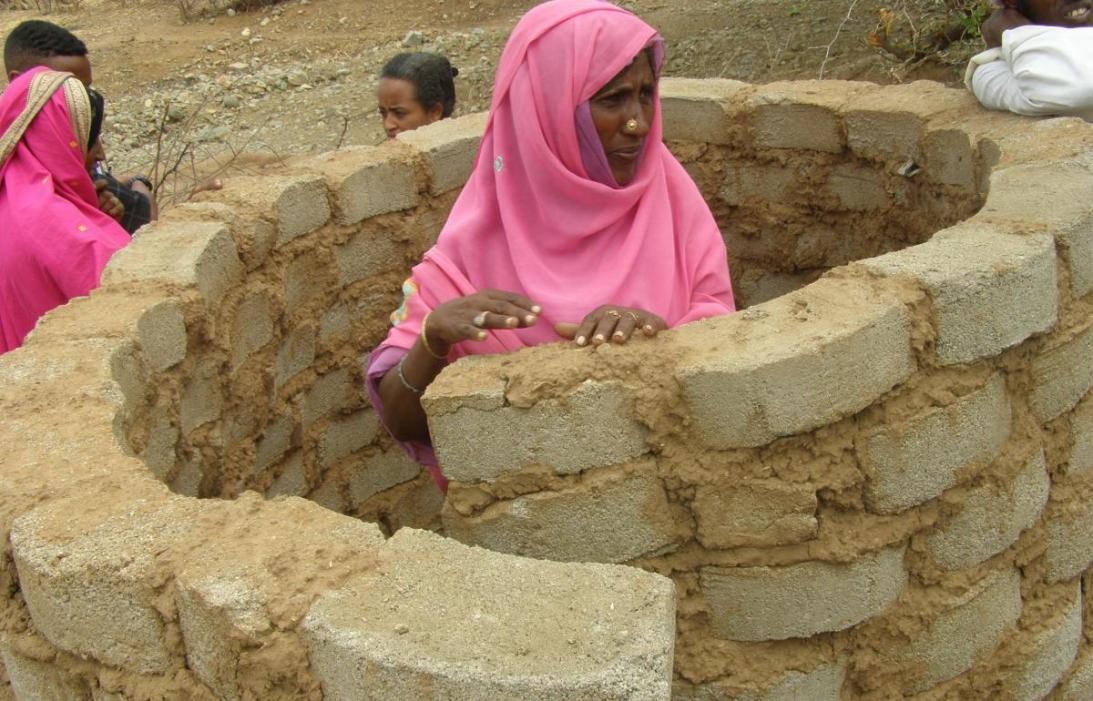What is needed to eliminate inequalities and achieve universal access to sanitation?
Published on: 10/07/2019

Wazinet village, Eritrea. Photo: Petra Brussee/IRC
The new Joint Monitoring Programme report 2019 has been published. This means the sector has updated data on the global progress towards some of the targets of Sustainable Development Goal 6. Country governments and other stakeholders may question the figures, but the data in the JMP report is extremely useful for two purposes: understanding trends and as a basis for engaging in meaningful discussions on the targets that have been set.
The report contains a lot of good news and a fair share of bad news. The good news is that there is considerable progress on access to water overall. But while most countries have increased rural coverage of basic services, only half have also succeeded in reducing the gap in coverage between the richest and poorest in rural areas. And in the other half, inequalities between the richest and poorest rural quintiles have actually increased.
The bad news is that there is no drastic change happening in the access rates to basic sanitation. The only countries that are showing a non-linear growth pattern for basic sanitation include India, Nepal, Bolivia and Cambodia. See more details on the trends in Stef Smits latest blog.
Looking beyond percentages the reality is still dramatic: over 2 billion people still rely on unsafe water, and 4.2 billion use sanitation facilities that allow their excreta to leak untreated into the environment. 4.2 billion people.
Previous editorials in Amplify discussed the importance of systems strengthening. What has become clearer the past months is that in the sanitation sub-sector the systems strengthening discussions are much less common. As are the discussions on the financing gap and increasing inequalities. This month Sanitation and Water for All (SWA) is organising a series of webinars on this topic.
India, has established the Swachh Bharat Mission (SBM) in 2014 to reach its ambitious targets of a Clean India. The main source of finance for the SBM has been a 0.5% tax on ALL taxable services. In short: public finance and taxation are being used to attract additional private finance and reach the ambitious goals. But more than money is required for reaching universal access. The World Bank, water.org and IRC have identified 10 foundational issues that need to be addressed to mobilise additional WASH finance as well as the solutions from several countries to overcome these foundational issues.
The 10 foundational issues have been used as a framework to make a deeper analysis of the situation in three countries: Ethiopia, Rwanda and Uganda; and to identify actions that can lead to increased growth rates and to a reduction of inequalities.
Many of these issues will be discussed at Stockholm Water Week in August. IRC and partners are co-organising sessions on systems strengthening, finance and engagement of civil society.
Wishing you all a good summer and looking forward to seeing many of you in Stockholm.
At IRC we have strong opinions and we value honest and frank discussion, so you won't be surprised to hear that not all the opinions on this site represent our official policy.